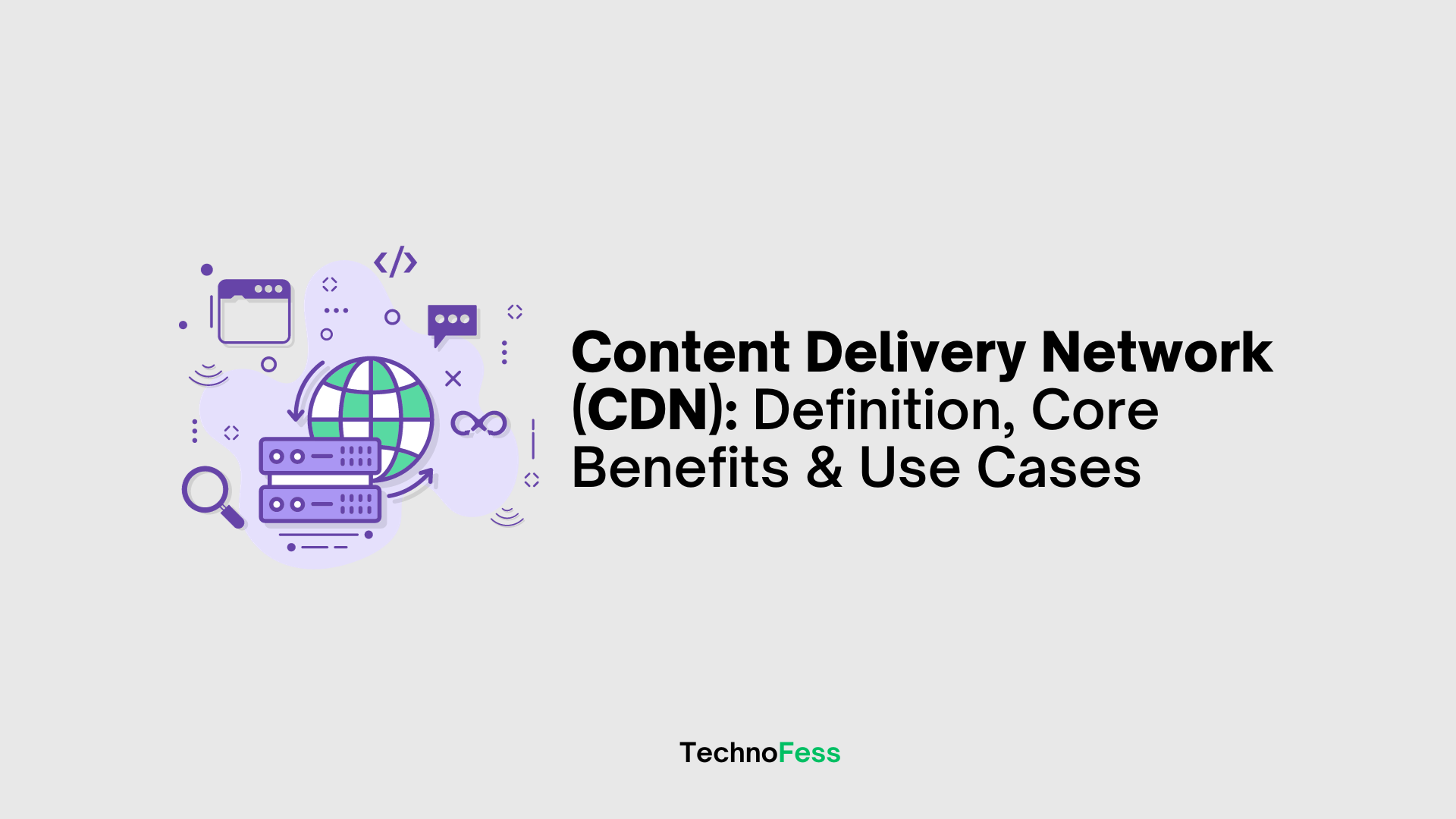In the modern world, using the internet is growing more and more dependent on the Content Delivery Network (CDN). Think of a content delivery network’s (CDN) role as a sort of internet “toll road,” ensuring a more streamlined online experience while enabling quicker access to digital content like webpages, movies, and photographs.
Are you still unsure about the definition and workings of a CDN? Relax, this essay will go into detail. We will also discuss how to choose the best CDN for your needs.
What Is a Content Delivery Network?
The creation of a content delivery network (CDN) network infrastructure aimed to optimize the worldwide dissemination of digital material through the internet. A content delivery network, or CDN, distributes digital content, such as images, videos, webpages, and apps, to several servers spread throughout the globe.
You might like: The Best Justifications for Using VPS in Cryptocurrency Trading
A request is sent to the closest CDN server each time you view a movie, browse a website, or access any other digital content. This server holds a copy of the content, so it can respond to user requests quickly. Consequently, content is retrieved via CDN from servers closer to the user’s location, improving and speeding up the user experience.
Use Cases and the Workings of a Content Delivery Network
Using CDN is a very simple yet extremely effective way to enhance the internet user experience. Simply said, content delivery networks, or CDNs, reduce the distance users have to physically travel in order to access a website or application from the primary server that hosts the content. How do they manage to do that? Points of Presence (PoP) are distinct geographical areas where content distribution networks store cached versions of their material.
On every PoP, cache servers are distinct codes. When you access content, the CDN will route your request to the PoP closest to you. This suggests that if you are in Indonesia and want to access content stored on a server in the United States, the CDN will retrieve it from a nearby PoP in Indonesia rather than needing you to retrieve it from a faraway primary server in the United States. As a result, the user experience is speedier and more smooth, and there is less stress on the main server and the internet network infrastructure.
5+ Benefits of CDN for Businesses
Using a CDN (content delivery network) has many benefits for businesses. Here are seven benefits that firms can enjoy by using a CDN:
- Improved Website Speed and Performance
CDN reduces latency by delivering digital content to servers located closer to the user. By accelerating the loading of pages and content on your website, this enhances user experience. Happy users are more likely to explore and stay on your site longer, which can increase sales and conversion rates. - Widely Available Content Delivery Networks (CDNs) store copies of your content on servers all over the world, ensuring its availability even in the case of problems with the primary server. By doing this, the likelihood of downtime and the potential loss of customers or visitors due to an unavailable website are reduced.
- Effective Bandwidth Utilization
CDN relieves the load on the origin server by storing content on the CDN server. This preserves your bandwidth, which reduces the cost of data transmission. Additionally, you may simply handle unforeseen increases in demand by reducing bandwidth utilization. - Enhanced Protection
Many modern CDNs also provide additional security layers. They have the ability to identify potential security threats and stop denial-of-service (DDoS) attacks before they have an impact on your main server. This protects your website from hackers and maintains the integrity of your data. - Optimized for Search Engines
Search engine ranking algorithms, like the one used by Google, give website performance a lot of weight. Using a CDN to speed up page loading can improve your website’s search engine ranking. This can facilitate users’ ability to find your website during online searches. - Streamlined Delivery of Multimedia Content
If your business employs multimedia content, such streaming video or animation, a CDN allows for more smooth delivery without stops or buffering. By doing this, you enhance user experience and fortify your competitive edge in the fiercely competitive multimedia content market. - Adaptability
CDNs are designed to endure unforeseen surges in traffic volume. When a promotion or special occasion increases website traffic, a CDN can handle it without causing site performance to suffer.
Are you considering implementing a CDN solution? When choosing a CDN solution, one of the most important factors to consider is how scalable the CDN will be as your business grows.
Read also: How to Fix Google Chrome’s “ERR_CACHE_MISS” Error
Akamai CDN, one of the best CDN services available, can assist with this problem. They possess a vast amount of expertise and a robust global infrastructure. Akamai is another well-known solution for improving user experiences, optimizing website performance, and increasing server utilization as your business expands.
The Types of Businesses Benefiting From CDN Use
Any business that has a website could benefit from using a CDN. Fewer network connection interruptions result in a better user experience for customers.
Common industries where CDNs are employed
- E-commerce: To ensure that their products are constantly available for purchase, businesses in this sector mostly rely on CDNs. Constant uptime enables businesses to reach a wider client base and often see improved rates of customer retention, both of which are important for optimizing profits.
- Education: Online courses have been increasingly popular during the last ten years. People no longer need to travel to take the same course; they may now participate from anywhere in the world. For several of these courses, students must see the video lectures in addition to the audio lectures. You can be certain that the participant’s location with respect to the server won’t have an impact on the user experience by utilizing a CDN.
- Media and Entertainment: A large number of media and advertising websites employ streaming services to deliver content to users. This process is enhanced by using a CDN to ensure that there is less chance of any network disruption or slowness, regardless of the user’s location.
- Online gaming: One of the most demanding applications is gaming, because to the large number of concurrent users and the volume of data and transactions involved. To obtain the maximum possible uptime, gaming firms must implement robust systems with the best possible levels of availability, dependability, fault tolerance, and scalability. These CDN features are essential to ensuring that players can access their games anytime they want.





